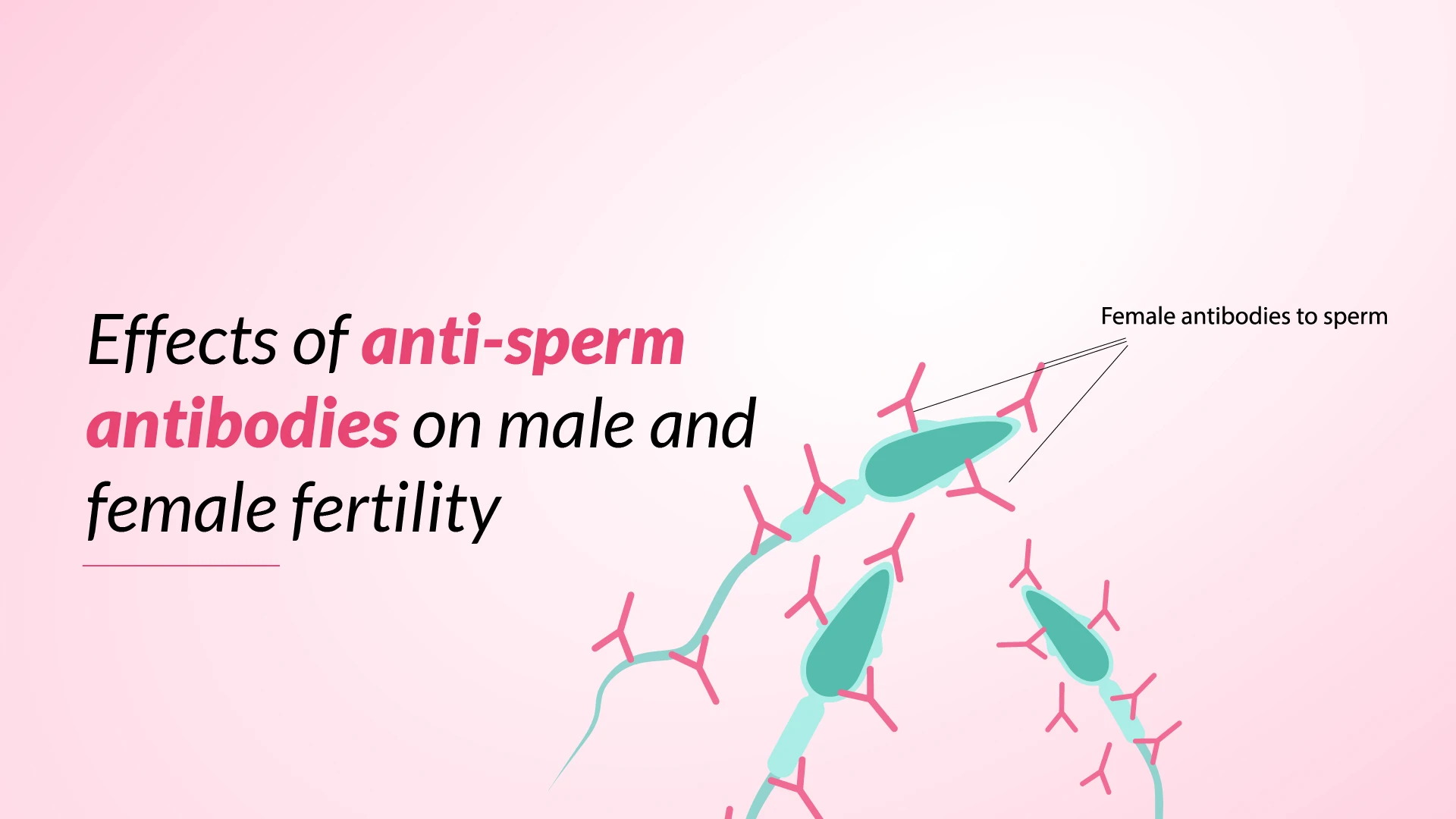Have you ever wondered why some couples struggle to conceive, even when all the typical fertility tests come back normal? The answer might lie in a lesser-known factor: anti-sperm antibodies.
Imagine your body mistaking sperm for foreign invaders and launching an attack against them. This is precisely what happens when anti-sperm antibodies are present, creating an invisible barrier to conception that affects both men and women. These antibodies are found in up to 12% of couples grappling with unexplained infertility.
Whether navigating the complex fertility journey or simply curious about the intricacies of human reproduction, understanding the role of anti-sperm antibodies can shed light on a crucial aspect of reproductive health.
What Are Anti-sperm Antibodies?
Anti-sperm antibodies (ASAs) are immune system proteins that mistakenly identify sperm as foreign invaders and attack them. These antibodies can develop in both men and women, and their presence can significantly affect fertility.
ASAs can bind to various sperm parts, including the head, midpiece, or tail. This binding can interfere with the sperm’s ability to travel through the female reproductive tract, penetrate the egg, or undergo the necessary processes for fertilisation.
Causes of Anti-sperm Antibodies
Common causes in males
In men, ASAs can develop due to various factors, including:
- Testicular trauma or injury
- Vasectomy or vasectomy reversal
- Testicular torsion (twisted testicle)
- Infections of the reproductive tract
- Prostate surgery or biopsy
- Autoimmune disorders
Common causes in females
In women, ASAs can arise from:
- Exposure to sperm during sexual intercourse or insemination
- Miscarriages or ectopic pregnancies
- Endometriosis
- Pelvic inflammatory disease (PID)
- Ovarian cysts or tumours
- Autoimmune disorders
Anti-sperm Antibodies Symptoms
In many cases, ASAs do not cause any noticeable symptoms. However, some individuals may experience:
- Infertility or difficulty conceiving
- Recurrent miscarriages
- Painful intercourse (in women)
- Swelling or tenderness in the testicles (in men)
How Anti-Sperm Antibodies Affect Male Fertility
ASAs can impact male fertility in several ways:
Impact on Sperm Mobility
ASAs can bind to the sperm’s tail, hindering its ability to swim effectively. This reduced motility can make it challenging for the sperm to fertilise the egg.
Impact on Sperm Binding
ASAs can also interfere with the sperm’s ability to bind to the egg’s outer layer, preventing fertilisation.
Sperm Destruction
In some cases, ASAs can trigger an immune response that leads to the destruction of sperm cells, reducing the overall sperm count.
Antisperm Antibody Testing in Males
To diagnose ASAs in men, a specialised test called the “anti-sperm antibody test” is performed. This test involves analysing a semen sample to detect the presence and level of ASAs.
Suggested Read: What is Sperm Morphology
How Anti-Sperm Antibodies Affect Female Fertility
ASAs can also impact female fertility in various ways:
Impact on Sperm Journey
ASAs present in the female reproductive tract can impede the sperm’s journey by immobilising or destroying them before they reach the egg.
Impact on Fertilisation
Even if the sperm manages to reach the egg, ASAs can prevent fertilisation by interfering with the binding process or damaging the sperm’s ability to penetrate the egg.
Antisperm Antibody Testing in Female
In women, ASAs can be detected through a blood test or an analysis of cervical mucus or follicular fluid samples.
Diagnostic Tests for ASAs
Several tests are available to detect the presence of ASAs in both men and women:
- Semen Analysis: This test evaluates the sperm count, motility, and morphology (shape) while also checking for the presence of ASAs.
- Blood Tests: Blood investigations can detect the presence of ASAs in the bloodstream.
- Cervical Mucus or Follicular Fluid Analysis: These tests can identify ASAs in the female reproductive tract.
- Immunobead Test: This specialised test uses fluorescent beads to detect and measure ASAs in semen or cervical mucus samples.
Suggested Read: 5 Common Diagnosis and Treatment Methods for Male Infertility
Anti-sperm Antibodies Treatment
The treatment approach for ASAs depends on the underlying root cause and the severity of the condition.
Anti-sperm Antibodies Treatment Male
In men, treatment options may include:
- Corticosteroid Therapy: Medications like prednisone can help suppress the immune system’s production of ASAs.
- Assisted Reproductive Technologies (ART): Techniques like intracytoplasmic sperm injection (ICSI) or in vitro fertilisation (IVF) can bypass the need for sperm to travel through the female reproductive tract.
Suggested Read: Facts About Assisted Hatching Reproductive Technology
- Sperm Washing: This process removes ASAs from the semen sample before insemination or ART procedures.
Antisperm Antibodies Treatment Female
In women, treatment options may involve:
- Corticosteroid Therapy: Similar to men, corticosteroids can help reduce ASA production.
- Intrauterine Insemination (IUI): This procedure involves placing washed sperm directly into the female’s uterus, bypassing the cervical mucus and reducing exposure to ASAs.
- In Vitro Fertilisation (IVF): IVF can be an effective option for women with high levels of ASAs, as it involves fertilising the egg outside the female’s body and transferring the embryo to the uterus.
Preventing Anti-sperm Antibodies
While not all cases of ASAs are preventable, some steps can reduce the risk:
Safe Sex Practices:
Using barrier techniques like condoms during sexual activity can help prevent exposure to sperm and reduce the risk of developing ASAs in women.
Good Reproductive Health:
Maintaining good reproductive health by practising safe sex, avoiding sexually transmitted infections, and seeking prompt treatment for any infections or injuries can help prevent the development of ASAs.
Addressing Underlying Health Conditions:
Identifying and treating any underlying autoimmune disorders or other conditions that may contribute to the development of ASAs can be beneficial.
Suggested Read: Causes and Treatment Options for Teratozoospermia
Conclusion
Anti-sperm antibodies (ASAs) can significantly impact male and female fertility. While ASAs may not always cause noticeable symptoms, they can interfere with various stages of the fertilisation process, making it challenging to conceive naturally. Early diagnosis and proper treatment modalities are crucial for managing ASAs and improving the chances of successful conception. By understanding the causes, effects, and available treatment options, couples facing fertility challenges can work closely with their doctors to develop an effective plan for overcoming the obstacles posed by anti-sperm antibodies.




























